Important Social Housing Projects in Morocco
Ismail Jamai, Vice-President of Groupe Jamai
People have to eat, people have to wear clothes, and people have to live in a home; and I think this is the main reason why we are in these three sectors.
Interview with Ismail Jamai, Vice-President of Groupe Jamai
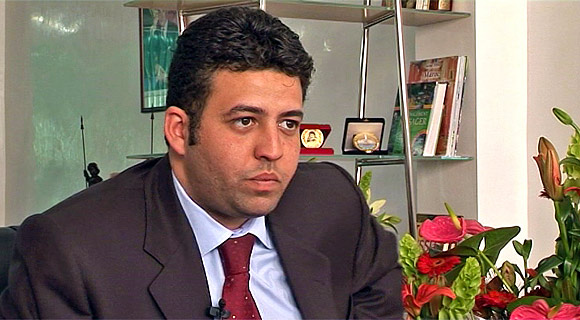
Thank you very much. I would like to start by introducing myself. I have studied abroad most of my life before coming to Morocco and being introduced to my father’s business. Growing up, I was very close to my father, and it’s through this experience that I haven’t found any problems to integrate into the Moroccan people and culture. It’s very important to be able to speak among all my engineers in the same way as I can speak to the lower class employees.
People have to eat, people have to wear clothes, and people have to live in a home; and I think this is the main reason why we are in these three sectors.
How do you assess Morocco real estate and construction sector, and what is the outlook?
Speaking about Marrakech for a start; Marrakech is a very special story. The authorities have authorized a lot more projects than the city needs. The offer is more than the demand, and obviously this creates a problem in any economy, but I would like to argue that Marrakech can always be saved, it just needs time for new generations to come in – maybe for the crisis to slow down in Europe – which will help Marrakech once again become as it was.
|
loading the player….
|
How about the other cities such as Fez or Meknes?
Fez and Meknes are very demanding cities. There are new companies that are trying to integrate into these new cities. Meknes/Fez did not make the mistake of authorizing too many projects, and for the time being, I think they’re doing very good.
What would you identify as the major drivers for the industry for 2011? Would it be the social housing everyone is focusing on or would it be more of the luxury segment?
I would definitely say the social housing. The luxury is a market that is not very demanding. It has its future, but social housing is a market that is much more demanding. Various ministries; ministry of interior and ministry of housing have introduced this new system of social housing which is a win-win situation and where the constructor/real-estate promoter has his success and the ministry is happy as well. I think the near future will bring luxury housing, but not now.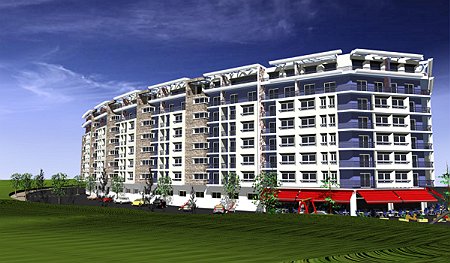
How accessible is project financing in Morocco, both from domestic and international sources? From your own experience, was there any problem with financing during the crisis, or were you off quite well?
In Europe, banks have been opening their doors for the last 20-30 years. Here in Morocco, banks have just opened their doors to customers, interest rates have gone down, and there is big competition between the banks. This has given an opportunity for Moroccans to have a home.
What obstacles are you faced in construction of your projects, and what are the major obstacles in the industry in Morocco? What do you see as the major challenge for the industry?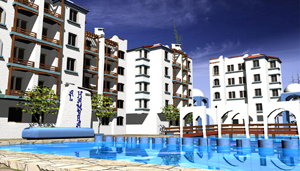
I think the major challenges of the industry are the Moroccan authorities, I think they need to be more flexible. I think it is very important that when you try to authorize a project, that they answer your demands more quickly, and that you’re able to start construction. I think the procedure at this time is very difficult and they just don’t make life easy.
What would you identify as the strategic challenge for the industry, the structural one? Could this bureaucratic challenge endanger the growth of the industry?
I do not think so, but if it gets worse and worse, eventually it will create a big problem. I would just like to come back to what you’ve mentioned about obstacles. When you’re a businessman: every business faces obstacles every single day; without obstacles life would be boring. It’s very important that we fight these obstacles and that we gain victory.
|
loading the player….
|
You’re one of the older groups in Morocco, you have started with textile, and then you moved to real estate, you’re also present in agriculture. Can you tell us the story of your group, how it started off? A little bit about the history and what is the future?
Our company started with my father who was installed in Fez, he had a small textile factory. Agriculture is very important. What do we people have to do in their everyday life? People have to eat, people have to wear clothes, and people have to live in a home; and I think this is the main reason why we are in these three sectors.
It is true that the textile industry in Morocco is getting more and more challenging. You’re facing competition from Asia, from China, from Vietnam, also competition from Turkey. What makes you feel optimistic about future of textile in Morocco?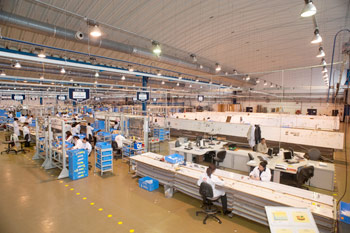
Obviously with all the competition coming from Asia we try to produce better product. What Morocco needs is to be able to deliver all the merchandize within a small period of time. It is very important that you always be present because of your geographical position. We are close to Europe, which the biggest, most important continent with the biggest demand. I would like to mention the unrest in Tunisia as well. I think lots of companies are moving into Morocco from Tunisia, lots of demand has been rising. I think this is our chance, and we just have to seize it and we’ll see what happens.
|
loading the player….
|
Can you mention some of your flagships projects in Fez, in Meknes, and in Casablanca? And what is your social philosophy? You’re trying to be a very local company; you’re trying to use local resources, and you’re trying to give something back to the cities you’re present in; what is it?
Our flagship projects obviously would come back to 1996; we started a project called Anasi; its 35,000 apartments in one closed residence, with its parks, gardens, sports facilities, mosques, schooling, and high schools.
How is Jamai Group approaching the question of corporate social responsibility?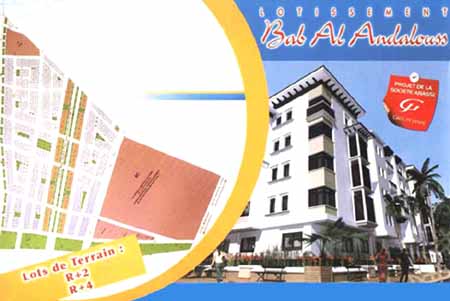
It’s called Jamai Association of Social Work, and we do various social activities. My mother is responsible for this association and she’s also the president of Cancer Association in Casablanca, in which we have built some two or three hospitals.
Just to come back to the second part of the question I asked before about your philosophy of giving back to the society in the cities you’re present in. What is your philosophy?
When I integrate into a city, I work with all the resources of the city, starting from the companies that work for me and construct for me. I need to work with the local companies; I need to work with the local people who bring me what I need give me all the respective raw material or material that I would need.
As our audience is international, how do you approach the question of promotion of your luxury projects internationally?
We try to do different exhibitions around the world, but I think the most important is word of mouth, which works really well in Morocco. People are looking for the group that has an image. A foreigner who comes spends his vacation here would like to go after one year and come back and find his house ready. When people speak about our group, they think we hold a very good image and it is a very big step towards success in the international market.
What really makes Jamai Group different from all the other players in Morocco?
Groupe Jamai is a group where we have a heart for our customers. I think that our difference is the image from 30 years of work and that is our main point of difference between other companies.
I would just like to mention the construction that our group has in program of construction: more social housing. We have a program of 100,000 flats to be constructed in the next 10 years.
We have opened in a region called Martile et Tétouan. It’s north of Morocco, I think it’s the best coastal area in Morocco. It’s a mixed development and we always try to offer every customer what he wants. 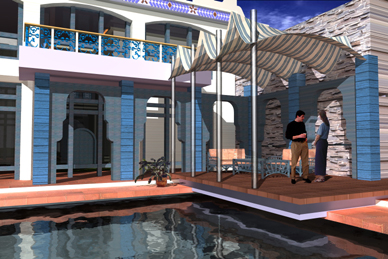
I would like to come back to Meknes, because my success as the Vice President comes back to Meknes which is the city that is really in my heart. I think the geographical position of Meknes is amazing because you’re 15 minutes from snow; you are maybe 45 minutes away from the beach. You are in a city where in every direction you’re next to the countryside, you’re next to greenery.